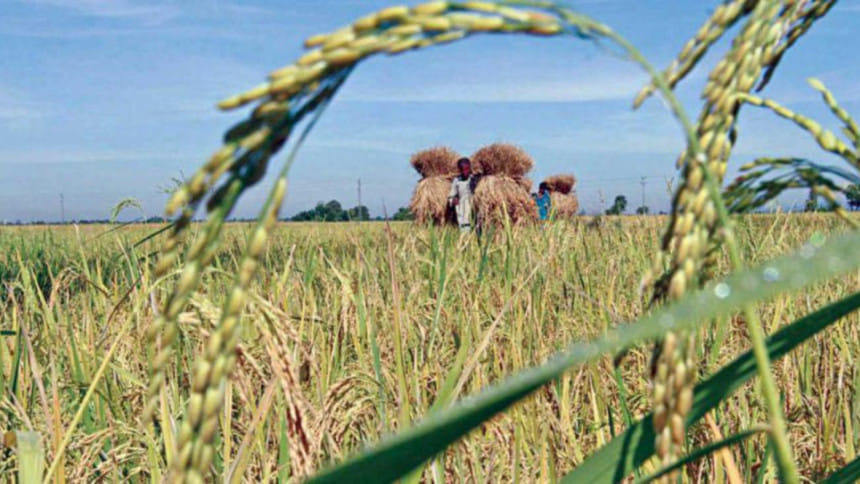Paving the path forward: Development challenges and priorities for Bangladesh

On January 17, Prime Minister Sheikh Hasina inaugurated the two-day "Bangladesh Development Forum," a flagship event of the government organised by the Economic Relations Division of the Ministry of Finance with three organising partners—BRAC, the World Bank and UNDP. At the event, implementation challenges of the 7th Five Year Plan (FYP), SDGs, and LDC transition were highlighted by experts from diverse sectors, embassies and donors, as well as government representatives and development partners. A number of pragmatic recommendations were made by the development partners with a strong commitment to continue their support and partnership with the government. The 7th FYP (2016-2020) of Bangladesh has made significant progress so far but challenges remain in some areas.
For example, the main challenge to education is inadequate financing. I think allocation for education should be increased in the next budget. Lack of skilled workers is another big challenge for our economic growth in this competitive global market. Our education system needs to address the future needs of the job market and should have a long-term focus rather than medium or short. Bangladesh has the potential to reap "youth dividends" if the youth are provided with adequate skills to actualise their dreams. Policies, action plans and clear implementation plans are three building blocks for development in the education sector. The donors usually work with a project-centred approach but they need to work with a sector-centred approach if they want to make meaningful and lasting contributions to our education sector.
To build resilience in agriculture and extreme climatic conditions, Bangladesh should focus more on public investment in agricultural extension services, access to training, production storage, etc. Additionally, public and private partnership is crucial for achieving our development goals related to agriculture. Agricultural development projects need to focus on climate change adaptation. The government also needs to invest on research and concentrate on building technologies that are responsive to climatic change. Also, people's consumption pattern needs to change as the production pattern is changing due to climate change. A balance is required between social safety net and insurance to compensate for the small-scale farmers whose products are damaged because of the impacts of climate change.
Meanwhile, Bangladesh has made exceptional progress in women's and children's health and related areas. However, inequality is still prevalent in terms of gender, ethnicity, and geographical location which need to be addressed immediately. Tackling non-communicable diseases is also a challenge. Attention should be given to produce medicine for cancer and make it available at cheaper prices for all. Although Bangladesh has made some progress in reducing maternal mortality rate (MMR), the rate is still high. Therefore, innovation to reduce MMR is required.
Sexual harassment, on the other hand, is still a significant barrier for women to access to labour market. Low rates of women's participation in the labour force and in managerial positions remain a key challenge in ensuring women's empowerment. Also, gender-responsive budget, access to ICT facilities, social-economic-political participation, facilitating women's entrepreneurship, ensuring property rights, having gender-disaggregated data, recognition of domestic work, investment to bring gender equality, tackling child marriage, better quality job for women, and improving the nutrition status of women and girls are crucial for women's empowerment and reducing violence against women and children. Appropriate legal interventions and policies will be required to fulfil these goals.
Currently, 30 percent of the population live in urban areas. We, therefore, need to focus on urban services with a specific attention to the transportation system. We need to develop a comprehensive transportation system and management. Better transportation and housing for the poor should be provided by the government. Infrastructure needs to be climate-resilient. We also need to understand the importance of the private sector's intervention in city development as the private sector can enormously help solve our housing problem. Low-cost housing can be a great way to ensure collaboration between the private and public sectors. For that, we need a comprehensive urban policy. Also, greater coordination is needed among the NGOs for an inclusive urban development.
The 7th FYP will reportedly require a total investment of Tk 32 trillion (USD 407 billion). Foreign Direct Investment (FDI) and the private sector need to play a critical role in financing the SDGs initiative. However, poor logistics and time-consuming approaches of the government are a major hindrance to FDI and private investment. Lack of good policy environment is another barrier that discourages FDI. The government should take immediate policy and institutional reform initiatives to attract foreign investment.
Bangladesh is going to face the LDC transition that may likely have some effects afterwards. It may, for example, reduce concessionality of FDI and portfolio investment, remittances, and ODAs and also may face effects on trade preferences. It should focus on policy reforms to overcome the potential challenges. We can produce intermediate products as we have the potential to expend our supply for global markets as many countries are still interested to invest in this country. Thus, we can overcome the challenges of global market access.
SDG financing is a big challenge for Bangladesh. To overcome this challenge, we need to have our own financing strategy. We have a great opportunity to harness blue resource-fisheries. In addition, we should use the "bidder method" to attract investors so we can choose the highest bidder. Bangladesh can achieve SDGs with appropriate policy efforts, so a lot depends on our policymakers. The question is, can they deliver?
Muhammad Mahdy Hassan is a Policy Analyst, Policy Unit-Advocacy for Social Change, BRAC. Email: [email protected]

 For all latest news, follow The Daily Star's Google News channel.
For all latest news, follow The Daily Star's Google News channel. 




Comments